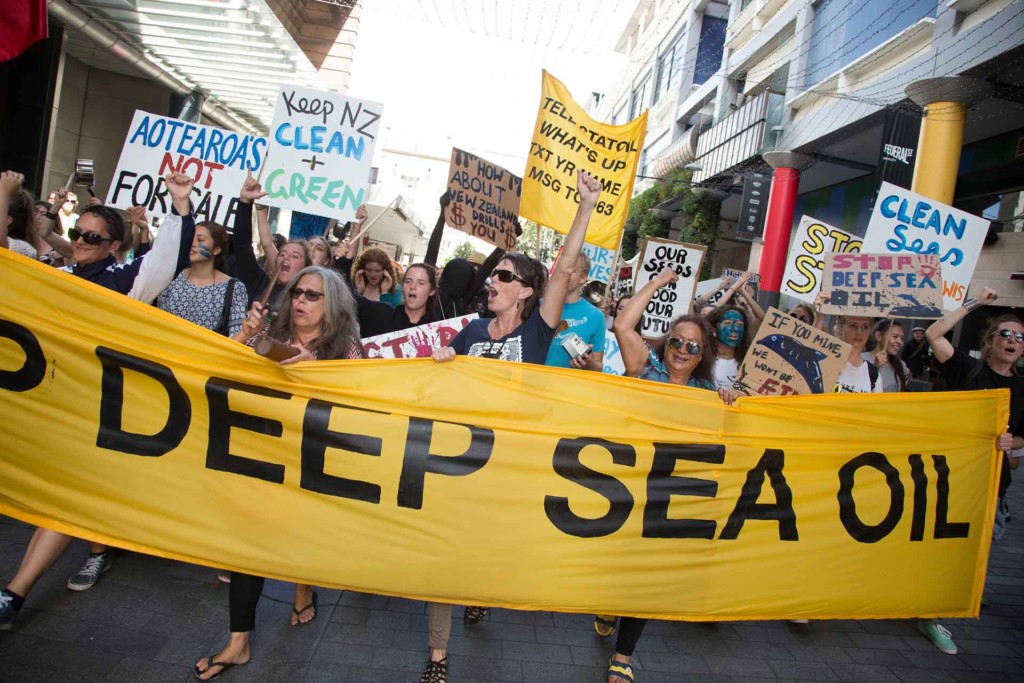Yesterday was a crushing day for Big Oil.
In a historic verdict, a Dutch court has just ruled with Greenpeace, and against Shell, that Shell is liable for damaging the climate.
It is the first time that a major fossil fuel company has been held accountable for its contribution to climate change and ordered to reduce its carbon emissions throughout its whole supply chain.
And the only reason we were able to bring this case forward against Shell? People like you, powering our work around the globe, and giving us the strength and resources to fight and win wherever we are needed.
You are what makes us powerful and independent, and able to take on the biggest corporations and win.
This climate case has real teeth and could set a precedent in favor of people and the planet for future climate litigation. It’s the first time that a court has ruled a company must specifically reduce climate changing pollution, and Shell is one of the 10 most climate polluting companies in the world. This verdict means that Shell now has to radically change course and reduce its CO2 emissions by 45% in 2030, in line with limiting global warming to 1.5 degrees.
A big step towards making oil history for real
The decision sends a clear signal to the fossil fuel industry. Shell cannot continue to violate human rights and put profit over people and the planet. Coal, oil and gas need to stay in the ground. People around the world demand climate justice.
Here in Aotearoa we led the way with a relentless campaign over many years, together with iwi, hapū, and countless others to put an end to oil exploration, and this is a reminder that our win is part of a much bigger movement for change.

People are no longer simply accepting that climate destruction is a way of life, the cost of doing business. The fossil fuel industry is a dying industry and a killing industry — and we have never been closer to a world without fossil fuels.
Movements, lawyers and courts, people like you and me, activists everywhere are joining together to hold multinational corporations accountable. We demand an end to the era of fossil fuels in our air, water, democracy, everywhere.
And it wasn’t just Shell that had a bad day. Courts, customers and Wall Street delivered rebukes to Exxon Mobil, Chevron and Shell.
“In the space of a few hours, Exxon Mobil Corp. was bested by an upstart shareholder seeking to shake up the company’s board. Chevron Corp. investors instructed the company to cut its greenhouse gas emissions. A Dutch court ordered Royal Dutch Shell to slash emissions by 45 percent.”
But onwards we go, there’s more to do.
New Zealand’s biggest climate polluter: intensive agriculture
Since our win on banning new offshore oil exploration permits here in New Zealand, here at Greenpeace Aotearoa we’ve shifted focus to New Zealand’s biggest climate polluter: industrial agriculture.
Agribusiness – especially intensive dairy – is responsible for about half of New Zealand’s climate emissions. New Zealand has the highest methane emissions per person in the world, and methane has a global heating power 80 times greater than carbon dioxide.
To be serious about climate action, the Government must take action to reduce the agriculture sector’s emissions.
That means regulating two key drivers of industrial agriculture:
1. Phase out synthetic nitrogen fertiliser
Every New Zealander deserves to swim in clean rivers and have safe drinking water. But too many cows and too much chemical fertiliser is rapidly polluting the rivers, lakes and drinking water we all enjoy and rely on.
We’re calling on the NZ Government to ban chemical fertiliser and cut cow numbers.
2. Phase out imported feed such as Palm Kernel Expeller
In New Zealand there are too many cows for the land to support, so big agri-business companies like Fonterra are importing extra feed, such as palm kernel expeller (PKE).
Fonterra’s use of PKE supports the destructive palm oil industry that is displacing indigenous peoples and local communities, killing wildlife and creating a toxic haze that endangers millions of lives, and it drives the intensification of dairy in New Zealand.
Join us to call on the New Zealand Government to phase out imported animal feed for the good of our climate, wildlife and human health everywhere.
Cows are to New Zealand what coal is to Australia
But it doesn’t have to be that way – there are better ways to farm.
Regenerative farming works within the limits of the land, without polluting water or the climate. We’re calling on the Government to invest in backing farmers to make the shift.
You play a vital role in driving this critical work — our protest marches, our civil disobedience, our petitions and our work together as Greenpeace here and across the globe.
Thanks for all of the passion, time, and money you have committed to make this day possible.
As we continue to turn the tide against fossil fuels and transform agriculture together, I look forward to reporting even further progress to come!



